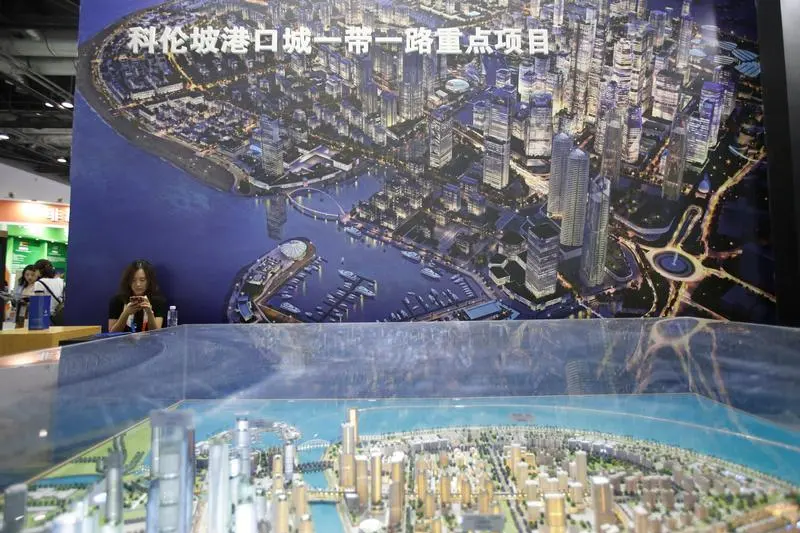PHOTO
The COVID-19 outbreak has obstructed the movement of construction materials and personnel - executive management and workforce - in the Belt and Road Initiative (BRI) partner countries, delaying or halting many of the on-going projects.
But the pandemic has helped highlight the importance of drafting forward-looking contracts that minimise the impact of unforeseen events on the contractual fulfilment obligations, legal experts interviewed by Refinitiv said.
Mun Yeow, Partner at Clyde & Co's Hong Kong office, said groups' and contractors' position would be better served by building clauses in long-term contracts that both limit the impact of risks, as well as afford flexibility to parties to respond to unforeseen changes over the life cycle of a project.
Paul Teo, Partner, Dispute Resolution at Baker McKenzie, Hong Kong/China said they expected future and new BRI contracts to contain provisions that address pandemics to a certain extent or a general clause that captures a generic, unforeseen event that allows for suspension or termination of contracts, as well as remedies to the affected parties.
Some experts said companies should be mindful of every contract and their clauses, especially force majeure, which is expected to be widely invoked for claiming relief this time.
"Previously, force majeure may have been a clause that was not heavily negotiated as regards the events which triggered the mechanism for relief and, where an event was prolonged, the ability to end a contract," said Cheryl Cairns, Partner at Trowers & Hamlins.
Rodney Chen - Partner, Infrastructure at SF Lawyers, a Hong Kong-based law firm which provides legal services in association with KPMG Law agreed that boilerplate force majeure clauses tended to be included into contracts without much consideration or negotiation.
Cairns said she expected force majeure to become "a key clause to review" on entering into future and new BRI contracts.
Yeow reckoned that a sufficiently wide force majeure clause and an impossibility clause, as well as entitlement to an extension of time and recovery of costs, may prove invaluable in times of unexpected events.
However, Chen pointed out that parties should carefully consider the scope of the force majeure clause and how it may affect their business as "they may or may not want a broadly drafted force majeure provision that allows for radical risk-shifting."
But all the legal experts agreed that companies and contractors should review their existing contracts to prepare for future contingencies.
"Parties should carefully appraise existing arrangements to understand the risks (and opportunities) that may be presented if contractual obligations are severely impacted," said Chen.
Yeow advised that parties should seek contractual renegotiation and variation where the contracts do not currently offer sufficient flexibility or relief in light of the difficulties posed by COVID-19.
However, Baker McKenzie's Paul Teo said for contracts already in existence, unless all parties agree, it may be challenging to re-negotiate their terms on the grounds of COVID-19.
He noted that for new contracts currently being negotiated and not yet entered into, "the lessons learned, and the issues faced by contractors for their existing contracts (such as providing for a force majeure clause that includes pandemics) would be helpful drafting points for the new contracts."
However, it is not possible to "cover the field" with proper drafting alone, cautioned Chen.
He said a thorough risk analysis and allocation needs to be carried out and proper consideration given to including appropriate financial contingencies and suitable time buffers.
(Reporting by Syed Ameen Kader; Editing by Anoop Menon)
(anoop.menon@refinitiv.com)
#Construction #Infrastructure #Coronavirus #Belt and Road Initiative (BRI)
Disclaimer: This article is provided for informational purposes only. The content does not provide tax, legal or investment advice or opinion regarding the suitability, value or profitability of any particular security, portfolio or investment strategy. Read our full disclaimer policy here.
© ZAWYA 2020





















